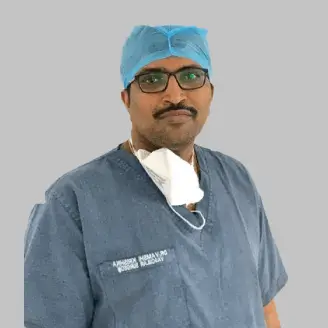-
Doctors
-
Specialities & Treatments
Centre of Excellence
Specialties
Treatments and Procedures
Hospitals & Directions HyderabadCARE Hospitals, Banjara Hills CARE Outpatient Centre, Banjara Hills CARE Hospitals, HITEC City CARE Hospitals, Nampally Gurunanak CARE Hospitals, Musheerabad CARE Hospitals Outpatient Centre, HITEC City CARE Hospitals, Malakpet
HyderabadCARE Hospitals, Banjara Hills CARE Outpatient Centre, Banjara Hills CARE Hospitals, HITEC City CARE Hospitals, Nampally Gurunanak CARE Hospitals, Musheerabad CARE Hospitals Outpatient Centre, HITEC City CARE Hospitals, Malakpet Raipur
Raipur
 Bhubaneswar
Bhubaneswar Visakhapatnam
Visakhapatnam
 Nagpur
Nagpur
 Indore
Indore
 Chh. Sambhajinagar
Chh. SambhajinagarClinics & Medical Centers
Book an AppointmentContact Us
Online Lab Reports
Book an Appointment
Consult Super-Specialist Doctors at CARE Hospitals

Vascular & Non-Vascular Renal Interventions
Vascular & Non-Vascular Renal Interventions
Vascular & Non-Vascular Renal Interventions
CARE Hospitalsvascular and endovascular surgeons frequently serve people with complex and dangerous illnesses of the blood vessels and lymph system (vascular diseases). Experts provide coordinated and comprehensive care to patients of all ages.
Our surgeons conduct vascular and endovascular surgery using cutting-edge technologies, including sophisticated stenting treatments, blood clot removal, and bypass surgery. Peripheral artery disease, aortic disease, mesenteric disease, nutcracker syndrome, and carotid artery disease are among the conditions addressed.
Vascular and endovascular surgeons at CARE Hospitals collaborate closely with experts in vascular medicine, heart disease (cardiovascular medicine), nerve system disease (neurology), physical medicine and rehabilitation, and imaging (radiology). This collaborative heritage is why, at CARE Hospitals, you receive the right treatment the first time. Our team creates a treatment plan that is specific to your requirements. And, in most cases, your evaluation may be completed in a few days.
Pediatric surgeons collaborate with other pediatric experts to offer children comprehensive treatment.
Advanced medical diagnosis and care
Doppler ultrasonography, computed tomography (CT) scan, magnetic resonance angiography (MRA), and renal arteriography are all diagnostic possibilities for renal artery stenosis at CARE Hospitals.
CARE Hospitals also provide blood oxygen level-dependent (BOLD) magnetic resonance imaging, a specialist test that assesses how much oxygen your afflicted kidneys are receiving in order to determine whether restoring blood flow in your kidneys' arteries may be beneficial.
Your doctor may begin with the following tests to diagnose renal artery stenosis:
A physical exam in which your doctor listens with a stethoscope over the kidney regions for noises that may indicate that the artery leading to your kidney is restricted.
-
An examination of your medical history
-
Blood and urine tests are used to assess the function of your kidneys.
-
Blood and urine tests are used to determine the amounts of hormones that control blood pressure.
The following imaging studies are routinely used to identify renal artery stenosis:
-
Ultrasound with Doppler. High-frequency sound waves let your doctor to visualize and test the arteries and kidneys. This technique also assists your doctor in locating and assessing blood artery obstructions.
-
A computed tomography scan During a CT scan, an X-ray machine connected to a computer generates a detailed picture including cross-sectional views of the renal arteries. You may be given a dye injection to demonstrate blood flow.
-
Magnetic resonance angiography (MRI) (MRA). MRA creates comprehensive 3D pictures of the renal arteries and kidneys using radio waves and high magnetic fields. During imaging, a dye injection into the arteries highlights blood vessels.
-
Renal arteriography This specialized X-ray inspection assists your doctor in locating the blockage in the renal arteries and, in certain cases, opening the restricted section using a balloon and/or stent. Before taking an X-ray, your doctor will inject a dye into the renal arteries via a long, thin tube (catheter) to highlight the arteries and better show blood flow. This test is mostly performed if you are also likely to require the placement of a tiny tube (stent) in your blood artery to expand it.
Treatment
Renal artery stenosis treatment may include lifestyle modifications, medicines, and a procedure to restore blood flow to the kidneys. A mix of therapies is sometimes the best option. You may not require any special therapy depending on your general health and symptoms.
Medication
High blood pressure, especially when caused primarily by renal artery stenosis, is frequently effectively managed with medicines. It may take some time and patience to find the proper drug or combination of medications.
Among the drugs often used to treat high blood pressure caused by renal artery stenosis are:
-
Angiotensin-converting enzyme (ACE) inhibitors and angiotensin II receptor blockers (ARBs), help relax your blood vessels and prevent the creation of effects of angiotensin II, a natural body substance that narrows blood vessels.
-
Diuretics, often known as water tablets, aid your body in excreting extra salt and water.
-
Depending on the drug, beta-blockers and alpha-beta blockers may cause your heart to beat more slowly and powerfully, or they may expand (dilate) your blood arteries.
-
Calcium channel blockers, which aid in blood vessel relaxation
-
Procedures For certain persons, a procedure to restore blood flow through the renal artery to enhance blood supply to the kidney may be indicated.
Clinical trials comparing medication with renal angioplasty and stenting found no difference between the two treatment options in terms of lowering blood pressure and increasing kidney function in individuals with mild renal artery stenosis. Procedures to open the vessel should be explored for patients who do not respond well to medication alone, are unable to take drugs, often retain fluids, and have treatment-resistant heart failure.
The following procedures may be used to treat renal artery stenosis:
-
Renal angioplasty and stenting during this operation, surgeons expand the restricted renal artery and insert a device (stent) into your blood channel, which keeps the vessel walls open and allows for greater blood flow.
-
Surgery to bypass the renal arteries. During a bypass operation, surgeons graft a new blood vessel to the renal artery to provide a new pathway for blood to reach your kidneys. This may include connecting the renal artery to a vascular from another organ, such as the liver or spleen. These treatments are often performed if angioplasty is unsuccessful or if other surgical procedures are required.
Our Doctors
-

Dr. Tarun Gandhi
MS, FVES
Vascular & Endovascular Surgery
View More -

Dr. P C Gupta
MBBS, MS, FICA, FIVS (Japan)
Vascular & Endovascular Surgery
View More -

Dr. Ashish N Badkhal
MBBS, MS, MCh
Vascular Surgery
View More -

Dr. Ashok Reddy Somu
MBBS, MD, FVIR
Vascular & Interventional Radiology
View More -

Dr. B. Pradeep
MBBS, MD, DNB, FRCR CCT (UK)
Vascular & Interventional Radiology
View More -

Dr. Mustafa Razi
MBBS, MD
Vascular & Interventional Radiology
View More -

Dr. N. Madhavilatha
MBBS, MS, PDCC
Vascular & Endovascular Surgery
View More -

Dr. Radhika Malireddy
MBBS, DNB (General Surgery), DrNB (Plastic & Reconstructive Surgery), Post-Doctoral Fellowship in Diabetic Foot Surgery
Vascular & Endovascular Surgery
View More -

Dr. Rahul Agarwal
MBBS, DNB (General Surgery), FMAS, DrNB (Vasc. Surg)
Vascular & Endovascular Surgery
View More -

Dr. Rajesh Poosarla
MBBS, MD, DNB, DM (Gold Medalist), EBIR, FIBI, MBA (HA)
Interventional Radiology
View More -

Dr. S. Chainulu
MBBS, DNB (Radio-Diagnosis)
Vascular & Interventional Radiology
View More -

Dr. Santhosh Reddy K
MBBS, MD
Radiology
View More -

Dr. Surya Kiran Indukuri
MBBS, MS (General Surgery), DrNB (Vascular & Endovascular Surgery)
Vascular & Endovascular Surgery
View More -

Dr. V. Apoorva
MBBS, MS (General Surgery), DrNB Vascular surgery
Vascular & Endovascular Surgery
View More -

Dr. Vamsi Krishna Yerramsetty
MBBS, DNB, FIVS
Vascular & Endovascular Surgery
View More -

Dr. Venugopal Kulkarni
MBBS, MS, MRCS, FRCS
Vascular & Endovascular Surgery
View More
Frequently Asked Questions
Couldn’t find what you were looking for?
Need any help? Get a Call Back.

Still Have a Question?

